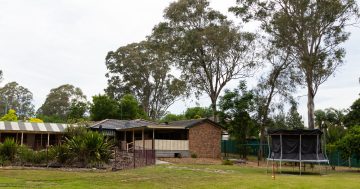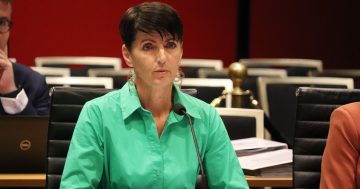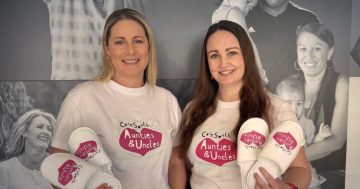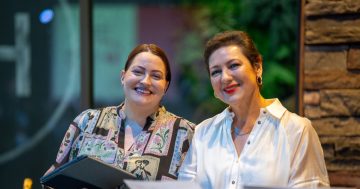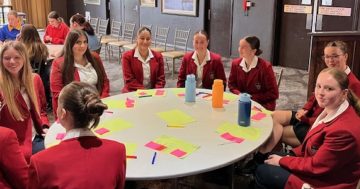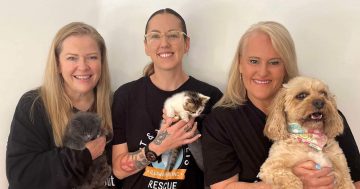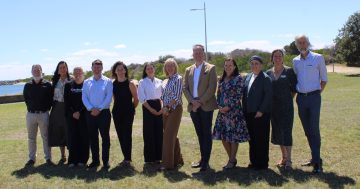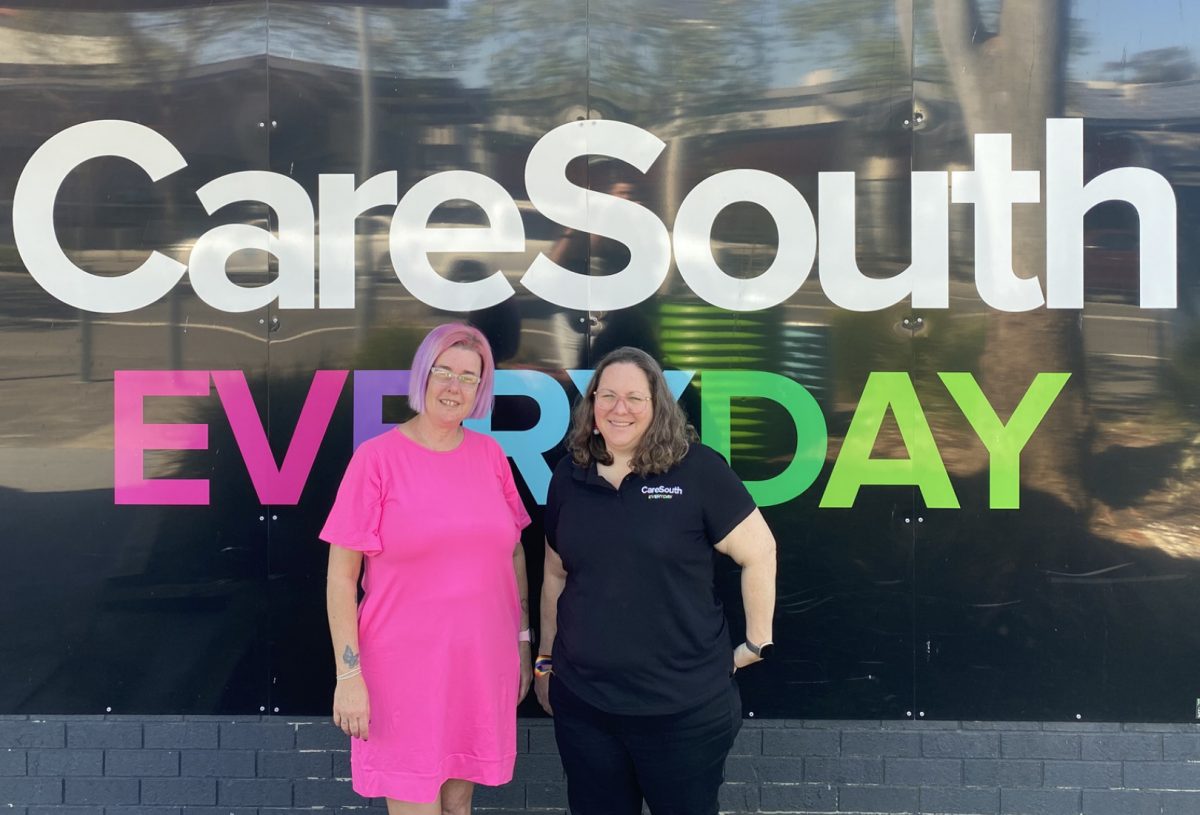
Foster carer Julie Heck and CareSouth Illawarra’s Karen Hooper are encouraging people to step up as foster carers. Photo: Supplied.
CareSouth Illawarra urgently needs people to open their hearts and homes to 45 children, as the region faces a critical shortage of foster carers due to the cost-of-living crisis.
During Foster and Kinship Care Week this week (9 September), the not-for-profit revealed that the Department of Communities and Justice had asked them to find foster homes for the 45 children in the Illawarra and Shoalhaven due to them no longer being able to remain safely at home.
Illawarra couple Julie and Peter Heck, who became foster carers in 2019, said the current economic climate shouldn’t be a deterrent, calling it the best decision they’d ever made and highlighting the ample support available for foster parents.
“We’ve got so much love to give, so thought we would go down the fostering path after considering it for a fairly long time,” Julie said.
“We were placed with a nine-month-old baby a month after we were authorised, so it was all systems go, but very rewarding.
“Now I can’t imagine life without these two little people in it, because they bring such joy to us every day. Every child deserves to be loved and have an awesome life.”
They took in their second son at just six days old direct from the hospital, after having two days’ notice to prepare.
“CareSouth made sure we had a capsule in the car, a cot, formula, nappies, everything we needed,” she said.
“If there’s anything you need when a new placement comes in, they’re onto it and have things to you within a couple of hours.”
While she acknowledged the cost-of-living made things challenging, an allowance helped them care for the boys.
“It helped with nappies and formula when the youngest was a newborn and now it helps with sending the oldest to karate lessons,” she said.
“The allowance ensures we can provide the children with opportunities they may not have had if they hadn’t come into our care.”
Research by the Association of Children’s Welfare Agencies (ACWA) has found that in the past five years the number of foster carers in NSW has decreased by 15 per cent.
Mortgage stress and the rising cost of living has resulted in an erosion of the middle class in NSW, the traditional demographic of foster carers.
CareSouth Illawarra carer engagement team leader Karen Hooper said there was a decline for a long time, but it had escalated post COVID and with the economic downturn.
“It used to be that most foster care households would have one working parent and one able to be available, but that’s just not the case anymore,” Karen said.
However, she said many people weren’t aware of the carer allowance available.
“It certainly isn’t equivalent to a normal wage, but it is a significant contribution to meeting the needs of the child and so that does allow some of the carers to work part-time rather than full-time,” she said.
“We find that people are maybe a bit hesitant to talk about money, because they’re worried about being judged, but we really understand that at the moment that’s a really valid thing people need to be able to feel confident about to support their own family as well as another child.”
She said Foster Care Week was not only an opportunity to thank carers but to encourage people to have a conversation about what it’s like to be a foster carer and break down any myths or barriers.
“We find that the biggest motivator people have is to see change in a child’s life,” she said.
“It’s being able to make a difference to one child or several children, be able to keep siblings together where they might have been separated, being able to see a child stay in school where they haven’t been regularly attending school or being able to teach them things they wouldn’t have been able to do before.”
Karen said foster carers took on the responsibilities of a parent by providing a safe, nurturing and secure family environment.
She said they needed to be loving, caring, kind and respectful to kids, have the time and space to care for them, and be willing to work with CareSouth to find the right match and undergo training.
Care options include long-term, short-term, respite and emergency foster care, along with restoration to family, kinship care, guardianship and adoption.
Julie and Peter are long-term carers, but have also taken on respite care, short-term care and been emergency carers.
“We chose long-term care to give constant stability for the children,” Julie said.
“We have done emergency care, which can be two nights or five weeks, but long-term is more beneficial because then the child isn’t going from foster carer to foster carer.
“We know we’re bringing joy to them because we’re making memories and keeping them safe.
“Becoming foster carers has just fulfilled our life.”
She encouraged anyone to take the plunge, adding there was “nothing to worry about”, with a support network and carer morning teas.
“It’s like we’re a huge family,” she said.
Those interested in becoming a foster carer are encouraged to contact CareSouth on 1300 554 260 or visit www.caresouth.org.au.









